
Concept explainers
a.
Interpretation:
The IUPAC name of given compounds has to be drawn.
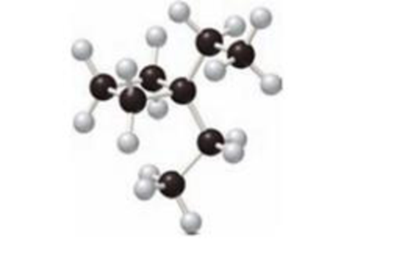
Concept Introduction:
The system which is used to name an organic compound is known as IUPAC Nomenclature. IUPAC are known as International Union of Pure and Applied Chemistry.
There are some rules followed for writing IUPAC Nomenclature for
- The longest chain in the compound is known as parent name which represent the number of carbon atom present in the continuous carbon chain. The root name for alkane compound is –ane. The single bonds are formed in alkane compounds.
- The suffix group denotes the
functional group present in a molecule. The prefix group indicates the identity, location and number of substituents attached to the carbon compound. - Then name and number the substituents present in compounds. Then use prefix di-to represent two groups, tri- refers to three groups and so on. The numbers can be separated by using commas and the letters from numbers can be separated by using dashes.
b.
Interpretation:
The one constitutional isomer of given compound has to be drawn.
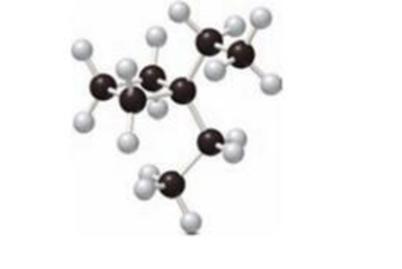
Concept Introduction:
Isomers:
The organic compound contains same molecular formula and different arrangement of atoms is termed as isomers. The isomers have different physical and chemical properties.
Constitutional Isomer:
Constitutional isomer has same molecular formula but they have different connectivity to each other. It is also known as structural isomers.
c.
Interpretation:
The solubilty of given compounds in water has to be predicted.
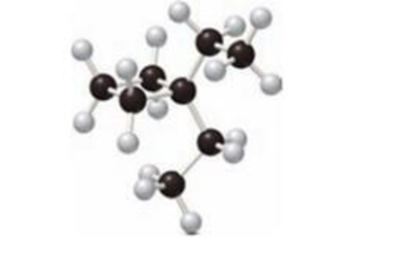
d.
Interpretation:
The solubilty of given compounds in organic solvent has to be predicted.
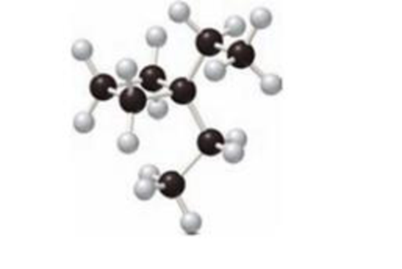
e
Interpretation:
The skeletal structure of the given compound has to be drawn.
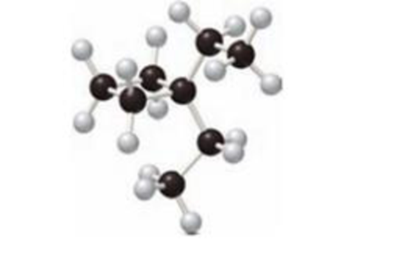
Concept Introduction:
Skeletal Structures:
The skeletal structure is the diagrammatic representation of organic compounds. It is used for compounds containing rings and chain of compounds. The bonds of atoms bonded together to form a skeletal structure. There is no need to mention the carbon and hydrogen element. There is no need to mention the lone pairs of electrons present in heteroatoms. The heteroatom has to be drawn and the hydrogen is bonded directly to them.
Want to see the full answer?
Check out a sample textbook solution
Chapter 10 Solutions
Connect 1-Semester Online Access for Principles of General, Organic & Biochemistry
- k₁ Given the reaction R₂ R + R, indicate k-1 (A). the rate law with respect to R2: (B). the rate law with respect to R: d[R₂] dt d[R] dtarrow_forwardGiven the reaction R+ Q → P, indicate (A). the rate law with respect to P: (B). the rate law with respect to R: (C). the rate law with respect to Q: d[P] dt d[R] dt d[Q] dtarrow_forwardThe reaction for obtaining NO2 from NO and O2 has the rate equation: v = k[NO]2[O2]. Indicate which of the following options is correct.(A). This rate equation is inconsistent with the reaction consisting of a single trimolecular step.(B). Since the overall order is 3, the reaction must necessarily have some trimolecular step in its mechanism.(C). A two-step mechanism: 1) NO + NO ⇄ N2O2 (fast); 2) N2O2 + O2 → NO2 + NO2 (slow).(D). The mechanism must necessarily consist of three unimolecular elementary steps with very similar rate constants.arrow_forward
- a. What is the eluent used in the column chromatography here (a “silica plug filtration” is essentially a very short column)? b. The spectroscopy of compound 5b is described in the second half of this excerpt, including 1H-NMR and 13C-NMR (which you will learn about in CHEM 2412L), MS (which you will learn about later in CHEM 2411L) and IR. One of the IR signals is at 3530 cm-1. What functional group does this indicate might be present in compound 5b?arrow_forwardSteps and explanations. Also provide, if possible, ways to adress this kind of problems in general.arrow_forwarda. The first three lines of this procedure describe the reaction used to make compound 5b. In the fourth line, hexane and sodium bicarbonate are added. What organic lab technique is being used here? b. What is the purpose of the Na2SO4? c. What equipment would you use to “concentrate [a solution] under reduced pressure”?arrow_forward
- When N,N-dimethylaniline is treated with bromine both the ortho and para products are observed. However when treated with a mixture of nitric acid and sulfuric acid only the meta product is observed. Explain these results and support your answer with the appropriate drawings *Hint amines are bases* N HNO3 H2SO4 N NO2 N Br2 N Br + N 8-8-8 FeBr3 Brarrow_forwardDraw a mechanism that explains the formation of compound OMe SO3H 1. Fuming H2SO4arrow_forwardConsider the following two acid-base reactions: OH OHI Based on what you know about the compounds and their acidity, which direction would you expect both of these reactions to proceed? Show your reasoning. A pKa table has been provided in case you need it. Functional group Example pka CHA -50 Alkane -35 Amine : NH3 Alkyne RH 25 Water HO-H 169 16 10 Protonated amines NH 10 5 Carboxylic acids OH Hydrochloric acid HCI A chemist intends to run the following reaction on the three substrates shown below: H₂O R-CI product room temp. Cl Cl (1) (2) (3) They find one will react quickly, one slowly, and one will not react at all. Which is which, and why? HINT: What is the reaction they're trying to do? Does that mechanism tell you anything about why something would be favored?arrow_forward
- NH3 decomposes through an equilibrium reaction between NH3, H2, and N2. Only one of the options is correct:(A). The mechanism of the NH3 decomposition reaction must necessarily involve the collision of two NH3 molecules to induce a rearrangement of the atoms in this molecule.(B). The molecular weight of the NH3 decomposition reaction is 2 since two NH3 molecules must collide.(C). The rate of the NH3 decomposition reaction must be greater than that of NH3 synthesis, since the former requires two molecules to collide and the latter, four.(D). The NH3 decomposition reaction cannot occur in a single step.arrow_forwardGiven the equilibrium A2 + B2 ⇌ 2 AB where k1 is the rate coefficient of the forward reaction and k-1 is the rate coefficient of the reverse reaction, with the forward reaction being first-order in A2 and B2, and the reverse reaction being second-order in AB. Equilibrium will be reached later if the relative values of the constants are:(A) k1 high and k-1 high(B) k1 high and k-1 low(C) k1 low and k-1 high(D) k1 low and k-1 lowarrow_forwardA 2-step reaction has the following mechanism: | 1. (fast) R2 R+R 2. (slow) R+Q K₂ P k_1 What series does it have? (A). v= - = (k + k1 − k-1)[R2][Q] (B). v=-k₁[R₂] + k₁[R]² - k₂[R][Q] (C). v=k₂[R]²[Q]² (D). v = k[R₂]1/2[Q]arrow_forward
 Introductory Chemistry: An Active Learning Approa...ChemistryISBN:9781305079250Author:Mark S. Cracolice, Ed PetersPublisher:Cengage Learning
Introductory Chemistry: An Active Learning Approa...ChemistryISBN:9781305079250Author:Mark S. Cracolice, Ed PetersPublisher:Cengage Learning
